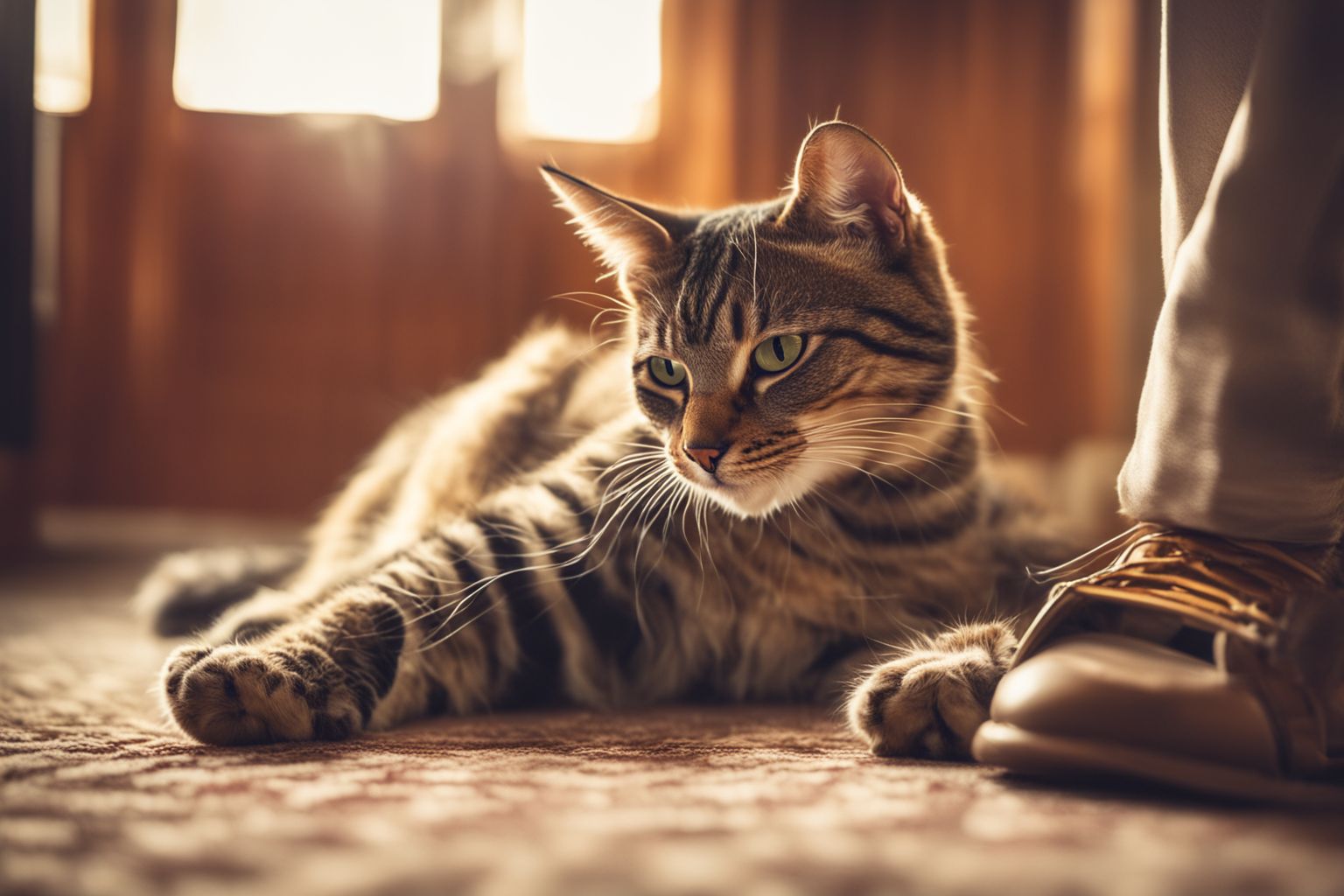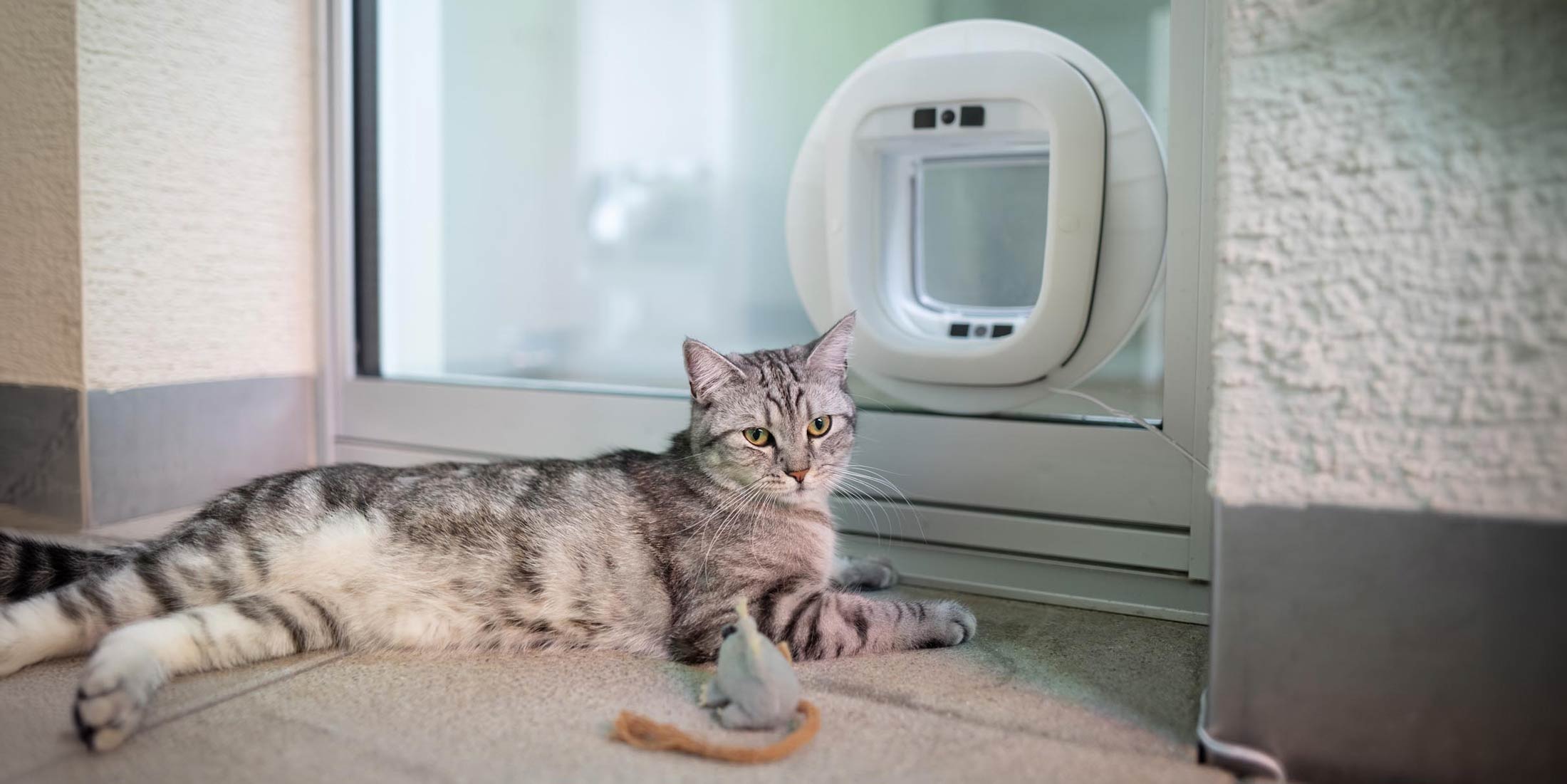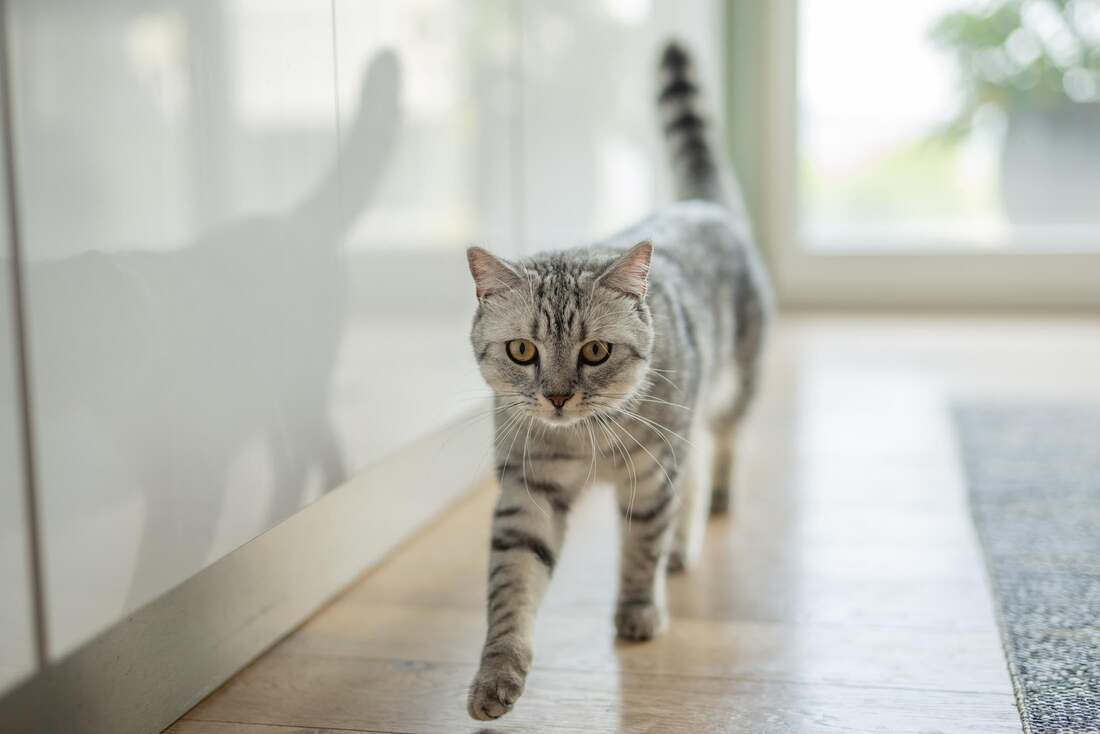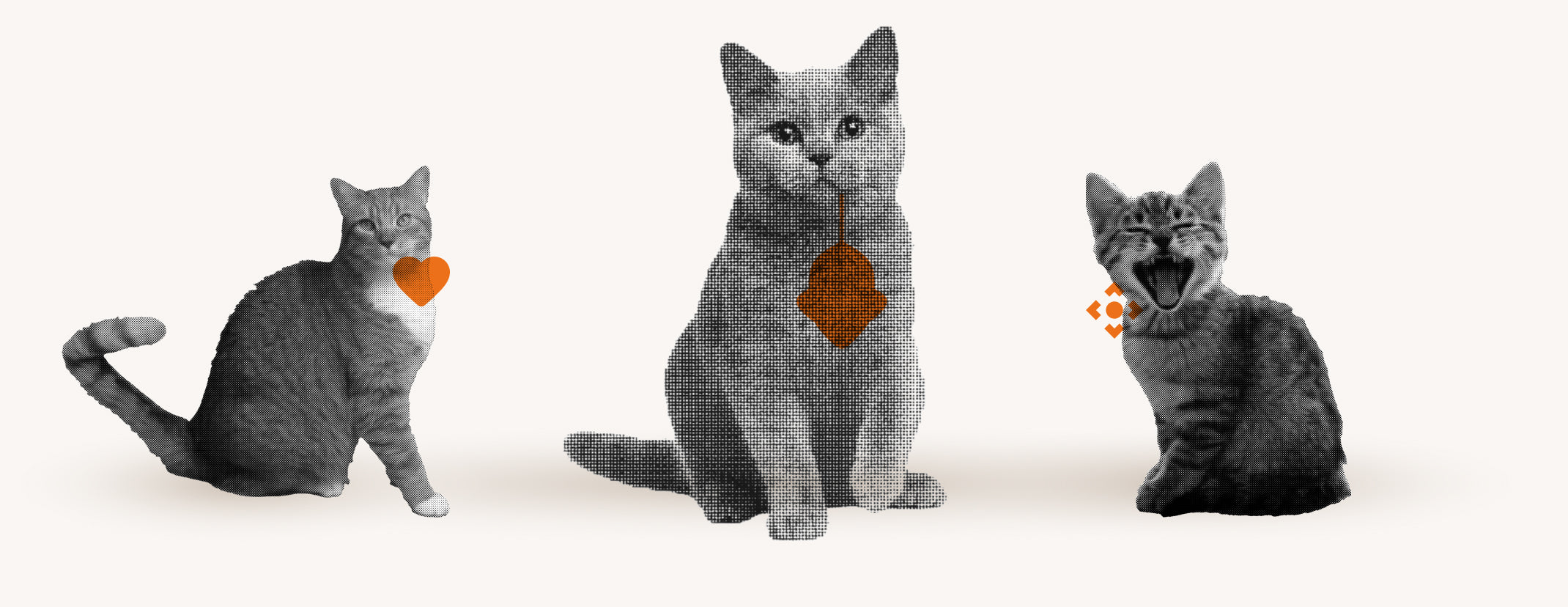Have you ever suddenly felt a sharp pain in your toes because your cat decided that your feet were perfect prey?
This nighttime "play" can be quite unpleasant and is a behavior that many cat owners know all too well.
The reasons for this are usually harmless and range from playful behavior to hunting instinct to possible health problems.
In this article, you will find out why cats bite feet and receive helpful tips and methods to help your pet break this habit.
Why do cats bite feet anyway?

Cats have many behaviors that can sometimes seem puzzling to us humans. One of them is biting feet. This can have a variety of reasons, ranging from natural hunting behavior to play instinct . Cats are hunters by nature, and even in the home environment, this instinct remains strong. Your feet can seem like prey to a cat, especially when they are moving.
Playfulness is another important factor. Cats, especially young ones, are very playful and often use their feet to practice their hunting skills. It's not uncommon for them to bite in a playful moment, especially if your feet are under a blanket or you're wearing fluffy slippers. Here are some reasons why play behavior can lead to foot biting:
- Movement stimulates the hunting instinct
- Feet are easily accessible targets
- Human reactions are entertaining for the cat
Sometimes, however, biting can also be a sign of boredom . When cats do not get enough mental and physical stimulation, they find their own ways to release their energy. Another serious reason could be a medical cause . Behavioral changes such as sudden aggression can indicate health problems, such as hyperthyroidism, which can lead to increased aggression.
It's important to closely observe your cat's behavior. Are the bites gentle or hard and accompanied by scratching? Do they occur primarily when you are moving or when you are still? Such observations can help you better understand the cause of the behavior . And if your kitty is showing other unusual symptoms, you should have him examined by a veterinarian to rule out any health problems.
How to stop your cat from biting your feet

If your cat uses your feet as a toy, it can be quite painful. But don't worry, there are effective ways to stop your cat from doing this. The key is to redirect her energy and play instinct in an appropriate way and show her that feet are not toys.
Cats are intelligent animals and can learn what is and isn't allowed. It's important to be consistent and use positive reinforcement to encourage good behavior. This means praising and rewarding your cat for playing with their toys rather than your feet.
Remember that patience and understanding are required. With time and the right strategies, you can help your cat develop new play habits and make foot biting a part of his past. Let's look at some practical tips and methods that can help you do this.
Play and Bonding: Alternatives to Foot Biting

Playtime is not only fun for cats, but also an important part of their daily routine . It helps them live out their natural instincts and provides the mental and physical stimulation they need to avoid high spirits .
To reduce foot biting, you should offer your cat a variety of toys that it can chase and attack. Toys that move and appeal to your cat's hunting instincts, such as feather toys or laser pointers, are ideal for this.
It's also important to set regular play times so your cat knows when it's time to play. Reward her for playing with her toys rather than your feet to help her learn the right behaviors.
Preventive measures against foot biting

To prevent foot biting, it's important to be proactive and provide your cat with an environment that is mentally and physically stimulated . An environment rich in toys and climbing opportunities can help prevent boredom.
Here are some preventative measures you can take:
- Make sure your cat has plenty of toys that he or she can use on his or her own when you are not available.
- A cat tree or shelves that your cat can jump on provide opportunities for her to explore and monitor her surroundings.
Make sure you spend time playing and cuddling with your cat every day . This will strengthen your bond and give your cat the attention it needs to avoid nipping at your feet.
Health check: When to see a vet?
Sometimes foot biting can be a sign of health problems . If you notice your cat suddenly becoming aggressive or changing their behavior, it could be a sign of pain or stress.
Here are some warning signs that warrant a visit to the vet:
- Your cat is hiding more than usual or showing signs of lethargy .
- There are changes in eating or drinking habits or in going to the toilet.
If your cat is persistently biting your feet and none of the above methods seem to be working, it is advisable to have your cat examined by a veterinarian. This can help you rule out any possible health causes and ensure your cat's well-being.
Smart cat flaps from Flappie as a solution
Cats use their hunting instincts not only when playing with your feet, but also when catching prey outside. Flappie's intelligent cat flaps offer an innovative solution: They detect whether your cat wants to come home with prey and then prevent entry. This keeps your home clean and free of unwanted "gifts".
The Flappie cat flap uses advanced AI technology to identify prey. This offers you as a cat owner crucial advantages:
- Selective access control prevents cats from bringing prey into the house.
- Prey detection through camera and artificial intelligence.
- An app informs you about your cat's activities and allows you to control the flap remotely.
So if you want to control your cat's hunting behavior and avoid unwanted foot biting, Flappie could be the solution. Visit the website https://flappie.ch to learn more and make life easier for both you and your cat. It's time to act and offer your four-legged friend a smarter way of entering and exiting.
Frequently Asked Questions
Why does my cat bite my foot?
Cats bite feet for a variety of reasons, including natural hunting behavior, play instinct, boredom, or even health issues. Your feet can seem like prey to the cat, especially when they're moving. Playtime and exercise stimulate the hunting instinct, and feet are easy targets. Cats also find human reactions entertaining. If your cat doesn't get enough mental and physical stimulation, boredom can cause them to bite feet. Behavioral changes such as sudden aggression could also have a medical cause, such as hyperthyroidism, which can lead to increased aggressiveness.
What should I do if my cat bites me?
If your cat bites you, it's important to redirect her behavior and show her that feet are not toys. Use positive reinforcement by praising and rewarding her for playing with her toys. Offer her a variety of toys and set regular play times so she knows when it's time to play. Provide a stimulating environment with plenty of toys and climbing opportunities. If foot biting continues and none of the methods seem to work, you should have your cat examined by a veterinarian to rule out any health problems.





Share:
Cat litter for toilet: Proper disposal and tips
Training your cat to be an outdoor cat: A comprehensive guide